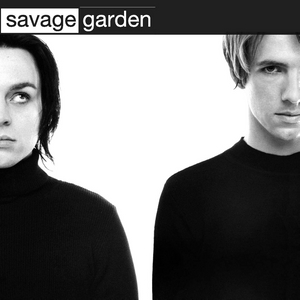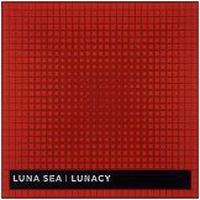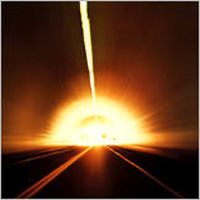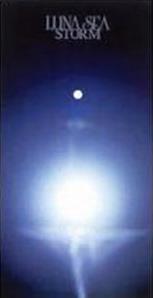
B'z is a Japanese rock duo consisting of guitarist, composer and producer Takahiro "Tak" Matsumoto and vocalist and lyricist Koshi Inaba, known for their energetic hard rock tracks and pop rock ballads. B'z is one of the best-selling music artists in the world and the best-selling in their native Japan, having released 49 consecutive No. 1 singles, 25 No. 1 albums, and 3 No. 1 EPs on the Oricon music charts, and have sold more than 100 million records worldwide.

Mai Kuraki is a Japanese pop and R&B singer-songwriter and record producer. After releasing her US debut single "Baby I Like" in 1999, Kuraki signed with Giza Studio and released her Japanese debut single "Love, Day After Tomorrow" in 1999. In 2000, she released her debut album, Delicious Way, which debuted at number-one and sold over 2.2 million copies in its first week. The album has spawned four top-three singles, "Love, Day After Tomorrow", "Stay by My Side", "Secret of My Heart", and "Never Gonna Give You Up". Eventually, the album sold over 3.5 million copies nationwide and became the best-selling album in Japan in 2000, and has been the ninth best-selling album in Japan of all-time.

Glay is a Japanese rock band formed in Hakodate in 1988. The core four members, vocalist Teru, guitarists Takuro and Hisashi, and bassist Jiro, have been together since 1992. Primarily composing songs in the rock and pop genres, they have also arranged songs using elements from a variety of other genres, including progressive rock, punk, electronic, R&B, folk, gospel, reggae, and ska. Originally a visual kei band, the group slowly shifted to less dramatic attire through the years. With five million copies sold, Glay's 1997 compilation album Review is the fifth best-selling album of all time in Japan. Their July 1999 concert at Makuhari Messe was attended by 200,000 people, making it the largest-ticketed concert ever held by a single act at the time. As of 2008, Glay had sold an estimated 51 million records; 28 million singles and 23 million albums, making them one of the top ten best-selling artists of all time in Japan.

First Love is the debut Japanese-language studio album by Japanese-American recording artist Hikaru Utada, released on March 10, 1999, by Toshiba-EMI.

Luna Sea is a Japanese rock band formed in Kanagawa Prefecture in 1986. Due to the use of makeup and costumes early in their career and their widespread popularity, they are considered one of the most successful and influential bands in the visual kei movement. Throughout the mid-1990s they used significantly less makeup, and after a one-year break in 1997, came back with a more mainstream alternative rock style and toned down their on-stage attire. They disbanded in 2000. In 2003, HMV Japan ranked Luna Sea at number 90 on their list of the 100 most important Japanese pop acts.
Shazna is a Japanese visual kei rock band originally active from 1993 to 2000. Originally having a strong gothic/post-punk influence, the band's sound greatly shifted to a more new wave direction by 1996. At their peak, they were considered one of "the big four of visual kei" alongside La'cryma Christi, Fanatic Crisis and Malice Mizer. Their 1998 major label debut album Gold Sun and Silver Moon reached the number two position on the Oricon chart, sold over a million copies and was named "Rock Album of the Year" at the Japan Gold Disc Awards. In 2006, Shazna reunited, though after releasing an album and a single they disbanded once again in 2009. In 2017, Shazna officially reunited again for their 20th anniversary.

Savage Garden is the debut studio album by Australian pop duo Savage Garden. It was released on 4 March 1997 in Australia by Columbia Records and Roadshow Music. The album won the award for Highest Selling Album at the 12th Annual ARIA Music Awards, selling more than 12 million copies worldwide, according to Billboard magazine. In September 1997, Savage Garden won a record ten ARIA Awards from 13 nominations for the album and associated singles. As of 2005, Savage Garden had been certified diamond in Canada, 12× platinum in Australia, 7× platinum in the US, 2× platinum in New Zealand, Singapore, and in the UK.

Blue Blood is the second studio album by Japanese rock band X Japan, then known as simply X. It was released on April 21, 1989, by CBS/Sony as the band's major label debut. Blue Blood sold more than 700,000 copies, reached number 6 on the Oricon chart and stayed on the chart for more than 100 weeks. The album's singles would also reach the top five on the chart. In 2007, Rolling Stone Japan ranked Blue Blood number 15 on their list of the "100 Greatest Japanese Rock Albums of All Time".

Merveilles is the third studio album by Japanese rock band Malice Mizer, released on March 18, 1998 by Nippon Columbia. It is the band's only album on a major record label. In 2004, it was named one of the top albums from 1989–1998 in an issue of the music magazine Band Yarouze.

Dahlia is the fifth studio album by Japanese rock band X Japan, released on November 4, 1996, by Atlantic Records. It is the band's last album before breaking up the following year, and the last to feature new work by guitarist hide, due to his death two years later. The album is composed largely of ballads, with only a few tracks retaining the band's heavier musical traits seen on previous releases. It topped the Oricon chart and stayed on the chart for only 15 weeks, but managed to sell over half a million copies. Seven, nearly all, of the album's songs were released as singles, most of which also topped the singles chart and sold well.

"Pink Spider" is the ninth single by Japanese musician hide, the second to bear the hide with Spread Beaver name, released on May 13, 1998, eleven days after his death. It debuted at number 1 on the Oricon Singles Chart and was the 11th best-selling single of the year, being certified Million by the RIAJ. It was also named "Song of the Year" at the 13th Japan Gold Disc Awards.

"Rocket Dive" is the eighth single by Japanese musician hide, the first to bear the hide with Spread Beaver name, released on January 28, 1998. It reached number 4 on the Oricon Singles Chart and was the 33rd best-selling single of the year. It has been certified double platinum by the RIAJ for sales over 500,000 copies.

Ryuichi Kawamura is a Japanese singer, songwriter, record producer, actor and author. He is best known as lead singer of the rock band Luna Sea since 1989. He started a solo career in 1997, three years before Luna Sea disbanded in 2000. In 2005, Kawamura formed Tourbillon with fellow Luna Sea member Inoran and Hiroaki Hayama. He rejoined Luna Sea when they reunited in August 2010.

Lunacy is the seventh studio album by Japanese rock band Luna Sea, released on July 12, 2000. It reached number three on the Oricon Albums Chart, charted for six weeks, and was the band's last studio album before disbanding in late 2000.

Shine is the sixth studio album by Japanese rock band Luna Sea, released on July 23, 1998. It was the band's first since switching record labels to Universal and their second consecutive number one studio album, following 1996's Style. With over 1 million copies sold, it is also their best-selling and was certified Million by the RIAJ. Shine was named "Rock Album of the Year" at the 13th Japan Gold Disc Awards.

Mother is the fourth studio album by Japanese rock band Luna Sea, released on October 26, 1994. It reached number two on the Oricon Albums Chart and was certified Platinum by the RIAJ for sales over 400,000.

"I for You" is the eleventh single by Japanese rock band Luna Sea, released on July 1, 1998. It reached number 2 on the Oricon Singles Chart and was the 49th best-selling single of the year. It was the third and last in a serial release after the band's hibernation from 1997 to early 1998.

"Believe" is the first single by Japanese rock band Luna Sea, released on February 24, 1993. It reached number 11 on the Oricon Singles Chart, and charted for seven weeks. In 2000, it was certified Gold by the RIAJ for sales over 200,000.

"Storm" is the ninth single by Japanese rock band Luna Sea, released on April 15, 1998. It was their fourth number 1 on the Oricon Singles Chart, charted for 10 weeks, and was certified Platinum in April 1998 by the RIAJ for sales over 400,000. "Storm" was the 29th best-selling single of the year with 720,370 copies sold, which makes it the band's best-selling single. It was used as the April 1998 theme song for NHK's music television show Pop Jam.

The discography of the Japanese rock band Luna Sea consists of 10 studio albums, 3 live albums, 3 self cover albums, 10 compilations, 10 instrumental remix albums, 21 singles, and 34 home videos.


















